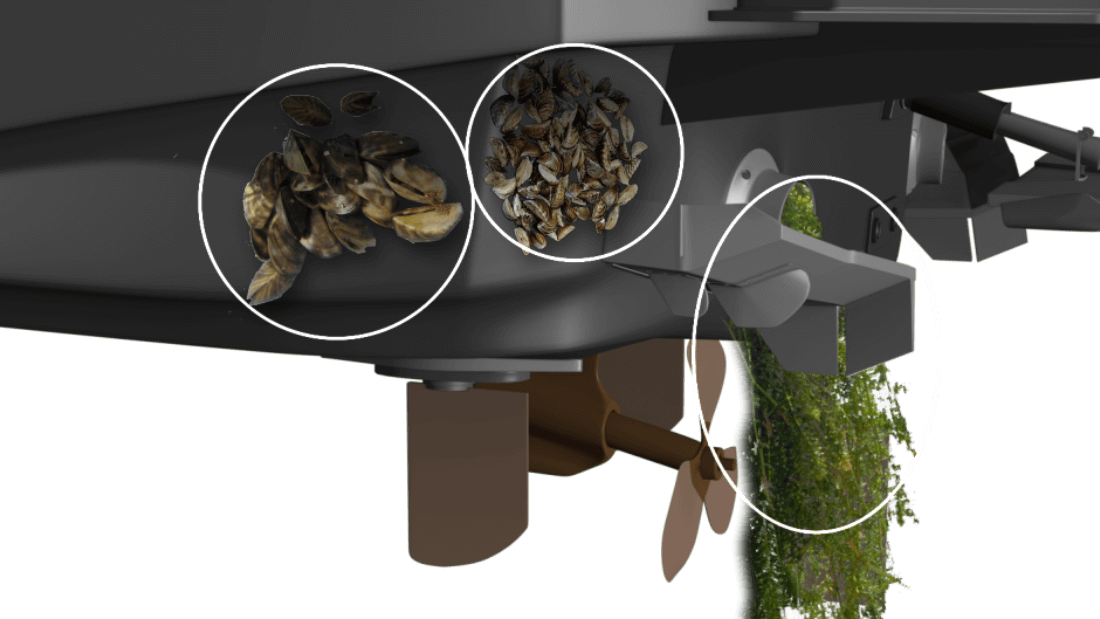Aquatic Invasive Species regulations in California Quagga and Zebra Mussels

Non-native aquatic species of plants, fish and animals – such as Hydrilla, Egeria densa, Water Hyacinth, and quagga and zebra mussels - are threatening the waters of California. They are known as ‘’Aquatic Invasive Species’’ because under the right conditions, these nuisance species can increase at an alarming rate, displacing the native species, causing blockages of the waterways, and having a negative impact on navigation and recreation.
They are next to impossible to eliminate once they are introduced. It is imperative to properly clean watercraft and equipment after each use.
Inspections for Quagga and Zebra Mussels are determined by county or local municipalities, and—in some cases—the Department of Parks and Recreation. Boaters should check to see whether boat inspections will be required beforehand.
Visit www.dbw.ca.gov for more information on quagga and zebra mussels or call (866) 440-9530.
Be sure to report new infestations of non-native aquatic species to the U.S. Fish and Wildlife Service at (209) 946-6400.
Laws and Regulations regarding Aquatic Invasive Species
-
California Code of Regulations Title 14 (14 CCR) § 672 - Possession, Importation, and Transportation of Dreissenid Mussels
-
14 CCR § 672.1 - Dreissenid Mussel Control and Prevention
-
14 CCR § 672.2 - Dreissenid Mussel Penalty and Appeal Procedures
-
Restricted Species Laws and Regulations Manual 671 (PDF)
-
Contains FGC § 2116 - 2127, et al.; 14 CCR § 671 - 671.8
-
Includes a list of the species that are regulated by these laws
-
-
California's Noxious Weeds from the Department of Food and Agriculture
How to prevent the spread of aquatic invasive species in California?
-
Drain live wells, bilge water, and transom wells before leaving the vicinity of where you have used your boat.
-
After leaving the water, inspect your boat and boat accessories, and dispose of any plants or animals you find by placing them in the garbage bin.
-
Empty bait buckets on land, never into the water.
-
Never dip your bait or minnow bucket into a lake if it contains water from another lake.
-
Never dump live fish or other organisms from one body of water into another one.
-
When you get home, wash your boat, tackle, downriggers, and trailer with hot water.
-
Flush water through your boat motor’s cooling system and other parts of the boat that normally get wet. If possible, let everything dry for five days in the hot sun before using your boat in another body of water.
Which non-native aquatic plants and animals species are invading California
Egeria densa, water hyacinth, and quagga and zebra mussels are some of the nuisance species that can be accidentally transported by recreational boaters when caught in propellers or intakes or attached to hulls.